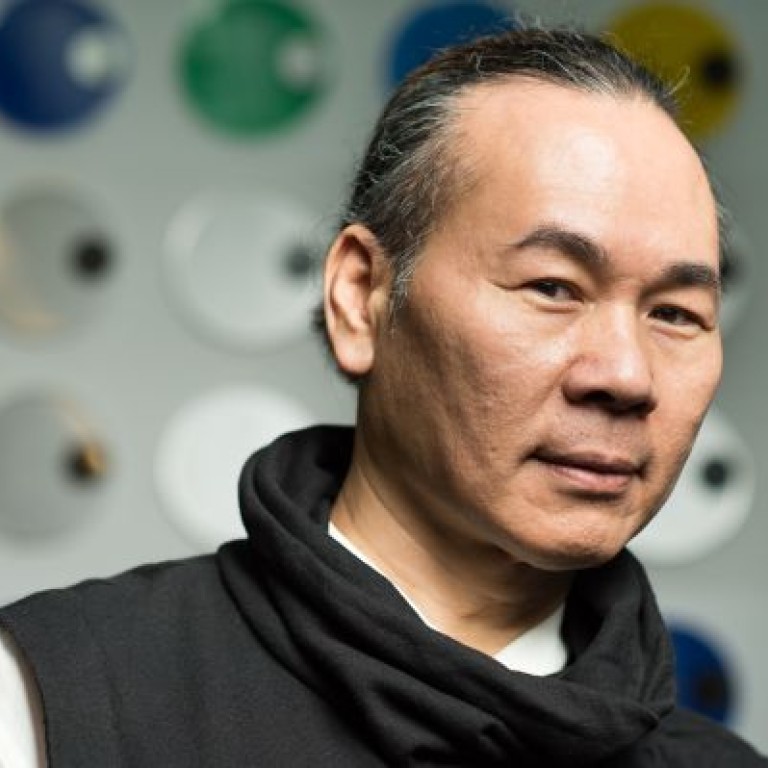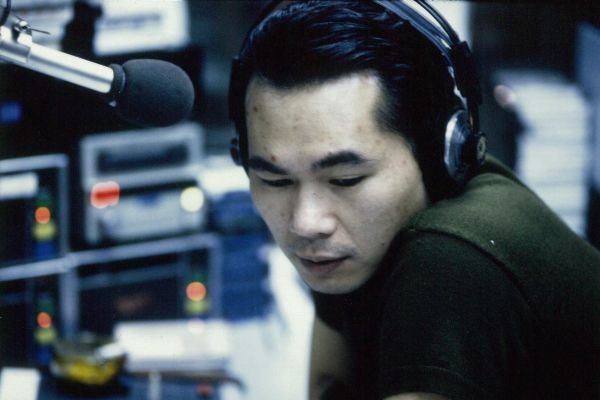
Gary Ngan
Radio host Gary Ngan began his life as a DJ at Commercial Radio in 1989. Famous for his smooth, soothing voice, Ngan is now a host on internet radio station D100. He tells Isabelle Hon and Adrienne Chum how he became a radio personality and gives some advice on not talking too much.
I was born and raised in Shek Kip Mei. I have an older and a younger brother.
I wasn’t a talkative person. The only time I really uttered anything was during speeches, speech contests, or singing. I was always chosen to participate in speaking and singing events at school. I’m not sure why.
I never particularly wanted to join this industry. I remember well that when my schoolmates discovered where I was working, they were very puzzled. “He doesn’t really talk, so why would he be in this business?”
I was a fur designer at the time, and was competing in the Asia-Pacific Song Contest. My family did not really recognize the contest—we were a traditional family. My family wanted us to do very “proper” work.
But while I was still doing design, I thought, why don’t I try radio?
In the 70s, what choices did you have? There was TV, and there was radio. If you didn’t have money to buy records, you would watch TV and listen to the radio to hear the latest songs.
When I listened to the radio, I hated when the hosts talked when songs were playing. So I thought: If I ever become a music radio host, I won’t talk over the songs.
Even now, people who listen to my channel say, “Mr Ngan, can you talk more?”

Photo: Kirk Kenny / studiozag.com
When I first started, I wanted to do it part-time because I was still freelancing in the fur design business. But soon after my interview, the station offered me a full-time, three-year contract.
The guy who hired me said, “Sign it, or don’t. We only offered you a contract because we thought your voice sounded nice.”
I didn’t think my voice sounded nice. I only thought I was smart. I could answer all of the interview questions about music trends, even about music in Japan, because I was often in touch with overseas clients.
I spoke Putonghua, I spoke English, I spoke Japanese. I thought I was great. But he told me, “Your Chinese is bad, your enunciation is bad. Our channel is in Chinese, so besides your voice, you really don’t have anything else to offer.”
I was upset, but I didn’t show it. I thought that since I’d trained for speech contests from youth, I could speak clearly. I felt that he did not recognize what I had.
Perhaps it was because I spoke so much English and Japanese at school and work. So my Chinese pronunciation may have got worse.
When I took the job, I treated it as part-time: designer by day, radio talk show host by night. In 1987, I finally quit my job and switched to doing only radio.
When I met the wife of the recording studio’s boss, widely known as Mrs Lau, for the first time, she said to me, “Don’t worry. Whatever people take from you, heaven will give back.”
I had never told her about my personal troubles, but what she said hit me very hard. It was around that time I learned who my real friends were.
I was very trusting, and I assumed that if I treated someone with respect, if I was nice, they would reciprocate. That was not always the case.

I’ve learned over the years that it is often better to stay silent. The more you talk, the more things you’ll say wrong.
When talking to someone, you have to communicate with the other person’s language. If you only use your own way of speaking, the other person may misunderstand you, and you will be forcing your ideas on them.
Advising someone is giving that person the option to change. Pushing someone to change does not work. You can’t get angry if they don’t. I always remind myself that I’ve already told them what I needed to. If they don’t change, there is always a reason.
Personally I hate being pushed, but I never show it on the outside.
If you can’t make a decision, the situation will make it for you. That means that whatever you are doing is not right for you.
Sometimes, people try to hold on to things because they are afraid of losing and letting go, not because they actually like it. You just have to let go.
Need to Know…

